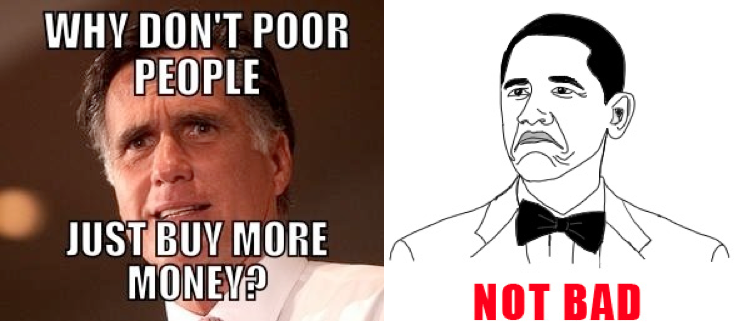Memeification of the News
Internet memes (specifically image memes) have taken the role of a media format for civic journalism, ever evolving and reproducing cultural/political concerns which reflect our social condition. As an amalgamated entity, memes are constantly integrating themselves within social platforms as a form of satirical commentary that runs parallel with daily news and social issues concurrent with todays events. Understandably, a significant portion of meme culture is wholly junk, regurgitated info-bytes relevant to the user and those around them (a problematic feature typical of the consistency in user-generated content). However, if we are to look past the initial humour surrounding this form of media, we can see that it holds great significance to a tremendous portion of online users. Its digestible format provides immediate information and insight to new events for those who are simply browsing, and to those with no deep consideration of the topic the meme is representing. It is because of this that the meme can be seen in new media websites concerning themselves with both viral and social news, such as Gawker & BuzzFeed. However, besides its rising physical presence within these types of news sites, the capacity for the memes ability to subconsciously influence its audience must also be considered; humour is a powerful method of persuasion.
Through use of Google Trends, it is possible to perform a content analysis which indicates the correlation between news and the subsequent rise of related memes via visual representation of search query data. A relevant example of memeification within news that can be analysed in such a way can be seen in the 2012 US Presidential Elections. The events and interactions of the opposing parties leading up to and surrounding the elections are (rightfully) under close scrutiny of the public, and this is reflected by the responses made online. American President Barack Obama has had previous interest as a meme prior to the 2012 elections considering his presidency over previous years and his interaction with a large section of the meme generating community, as shown by the graph above. However, interest in republican Mitt Romney has spiked (surpassing that of Obamas) during the past few months as his presence within news and media has taken the interest of user generated memes. Negative interest, to be precise.
As shown by the comparative graph below, the rise of Mitt Romney’s query interest is paralleled (following a short delay indicating the Internets gradual awareness of the meme), by the interest in the query ‘completely wrong’, which stemmed from a political story which invoked an interesting response from the algorithms that control the Google search engine. On October 5th, following his statement on Fox News regarding the 47% of American voters, Romney reconsidered his stance stating it to be ‘completely wrong’. With news platforms focusing their news around this report, associating images of Romney to his statement, Google images search engine was flooded with paralleled media linking images of Romney to the statement when queried, and so as a natural occurrence the results became a political phenomenon. By October 10th, ‘completely wrong’ had become the third most searched query on Google hot trends.
On a similar level, images of Obama are associated with the statement ‘one term proposition’ (when queried in Google image search), an argument used by Fox News during there accusations against Google as a ‘left-leaning’ company in defence of Romney’s recent blunder. Considering this, it may be possible to suggest that the memes ability to associate itself as a stigma against political individuals is a powerful tool that future politicians should consider. The presence of memes within this specific case study is substantial, to the extent that a website titled Election Memes has taken upon itself the archiving and collection of memes relating to this years election. This even extends to the creation of websites based around the political shortcomings of Romney himself, as an individual candidate, perceived by users/members of the public with a dedicated Twitter page running parallel.

Examples of political memes in circulation today – ‘Relatable Romney’ / ‘Not Bad Obama’ – Reflects leftist impressions of candidates (contempt / indifference)
So what can be inferred from this analysis? Is there any significance within the meme as a cultural object that can hold sway on the perceptions people have of their content? Or are they simply comedic stabs at irony, sarcasm and wit, with no deeper meaning? The power of the meme is found within its numbers. It is the frequency at which a meme is imitated, recreated, edited and republished that saturates its associative terminology, leading to unavoidable related searches. As seen with the above example concerning Mitt Romney, the saturation of images within a search engine leads to further press coverage which in turn exacerbates a story into a destructive flaw that can be held against the party in question, a flaw that would have otherwise dispersed with only slight repercussions were it not for the presence of the meme. Regardless of whether they are used in context, the existence of these memes will surpass their relevancy on message-boards and forums, applied in various manners to completely non-topic issues. However, their origins will still be remembered.
Sources


